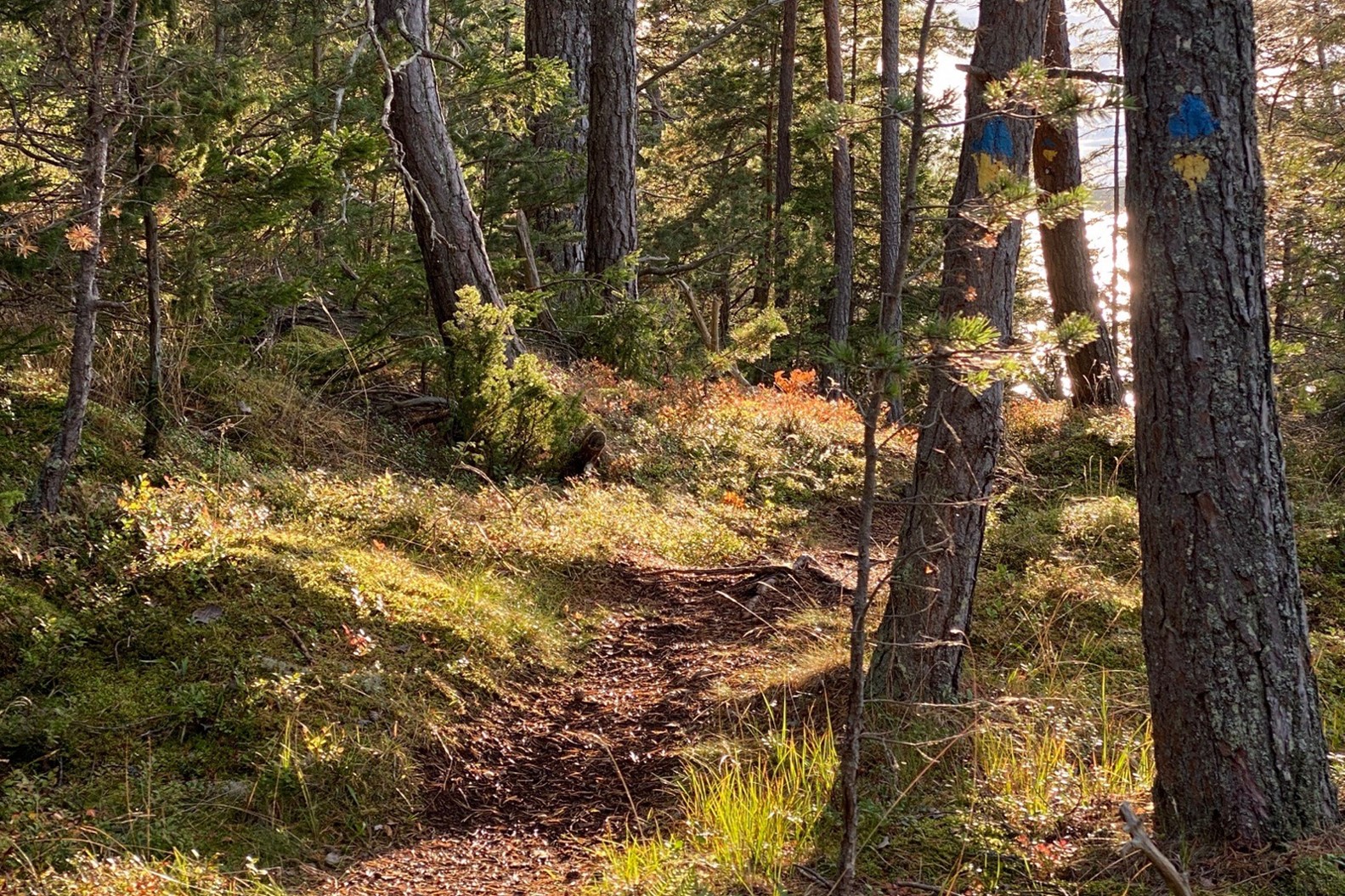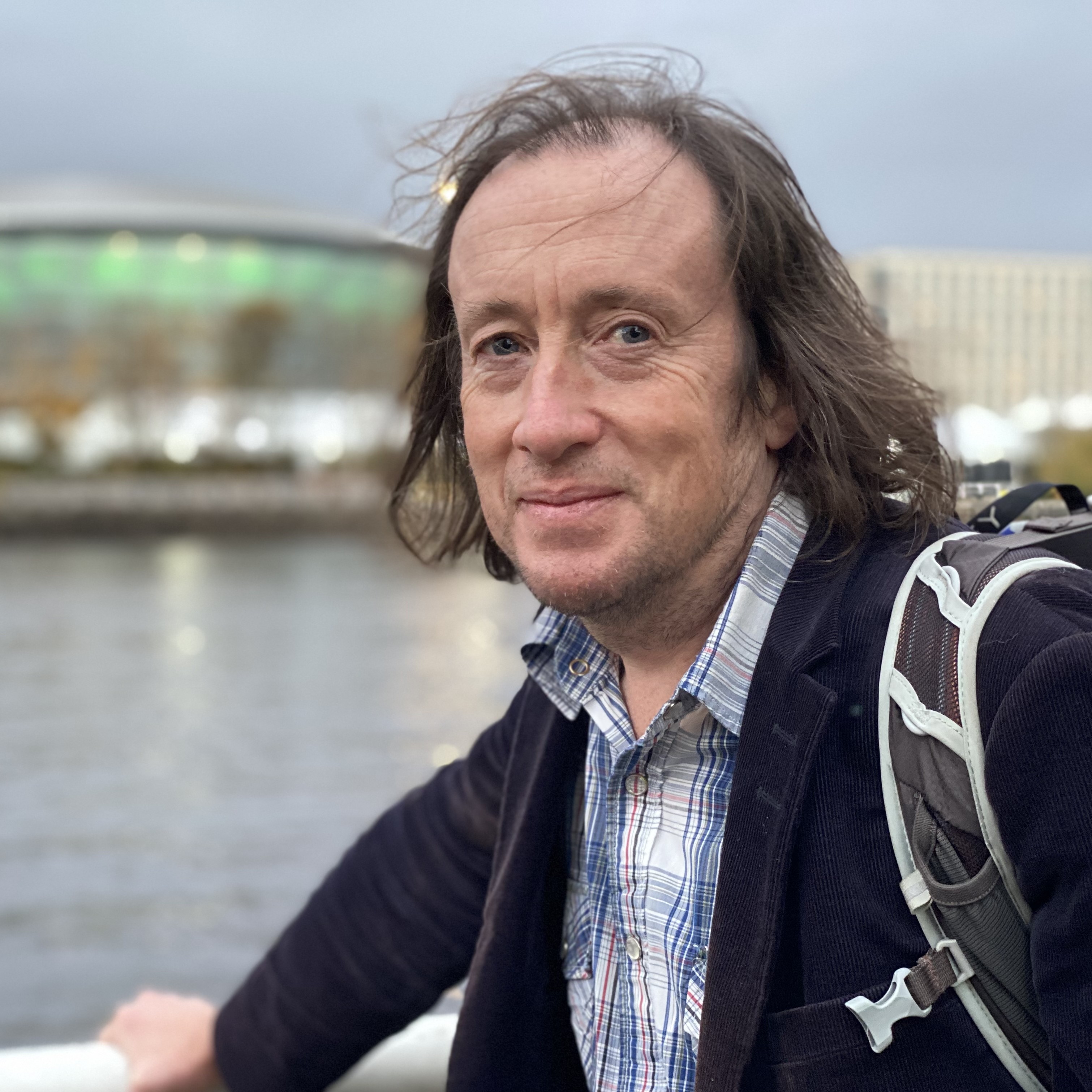I am walking in the forest on my favorite island with one of my grandchildren. She is telling me about her plans for a once-in-a-lifetime round-the-world adventure. She has just finished high school and she is taking a year off before starting at university where she will study philosophy, because she can. Her journey will be by rail and sail. We never found a good solution for flying, so we accepted it, and moved on. The rail network is global now. You buy one ticket from Stockholm to Beijing and carry on from there on the trans-Pacific ferries. They are fast and powered by enormous sails. I did the journey once, before I retired. It was wonderful. We crossed the wheat fields of Ukraine, Russia, Tibet and China. Borders don’t matter so much anymore. We all have the same passport. We are global citizens. We had to be, because it was the only way to repair the atmosphere we had polluted so badly. No country could do it alone, because we only have one atmosphere and we share it with everyone on Earth.
We do not talk about “low-income” and “high-income” countries like we did 30 years ago. This is because, when we went global, we had no choice but to share fairly. It was a bit of a struggle at first. People in richer countries were worried that they would lose too much, but what we found out was that it didn’t matter. The stuff we lost was not stuff that made us happy. Indeed, we are happier now in a world without borders. It’s a bit like the European Union of old, but global. My children can settle anywhere in the world. Although, secretly, I hope that they will stay here in Sweden, because I would like them to be close to me. But then, a wise person once told me that if you truly love someone, let them go.
The forest we are walking through is like the natural ones of old. It is not really a natural forest, because it was once cut down for biofuel but it is regenerating. Biofuel was an alternative to fossil fuels which we thought was okay when we were using it. But we had forgotten the lessons of the past. The reason we started burning fossil fuels (coal back then) from the coal mines at Nyvång was because we had burned all of the trees. Once we started burning trees again, we had come full circle, even if we did not realize it straight away. We were back where we started. It was then that we made the obvious decision (at least it seems obvious looking back). It was part of the global agreement. We agreed to burn less.
And it is not burning trees that we do less of. We consume less of everything now. We have to, because what we have must be shared among us all. That is also part of the agreement. But we are happier. We are not as many now, because standards-of-living rose when we abandoned economic growth. It’s funny thinking back. We actually believed that we could have endless growth on a planet with fixed dimensions. We adopted a new economic model. Its purpose was to create well-being for all humans and nature, rather than monetary profit. There was skepticism at first, but “not-for-profit” was nothing new. Some businesses had used it for years. When the new model took over, we found that it worked far better. We found (what we already knew in our hearts) that happiness had never been something that money could buy.
Obviously, we stopped burning fossil fuels. But what was surprising (at least to me, as a geologist) was that it was the economists who finally figured it out. The new generation of economists explained that burning fossil fuels was kind of like printing money when you run out of the stuff. Think of carbon as currency. There is just so much of it in the living world of our own time. Just like money. When we burn fossil fuels, we are adding carbon to our own time from the ancient past. Just as printing money would cause the economy to collapse, all this extra carbon caused the climate to collapse. We all learned this from the heat waves of the thirties. They were scary. They still are, but the curves are beginning to turn, and I am sure, that when my grandchildren are my age, we will have winters again.
Best of all is that the transition actually worked. Fossil fuels had to be replaced. We did need energy. The waste problem ruled out nuclear. There really was nowhere safe to put it, not for a million years, and part of the global agreement was future responsibility. Instead, we chose what we called “renewables” back then. We use that word with caution today, as even “renewables” use non-renewable resources, such as rare minerals which take millions of years to form. I think that this is why we once called them “critical raw materials”. So, we paced ourselves, matching our energy use with what nature could actually provide. And the global agreement meant fair sharing. I am so glad it happened that way. It could have been a repeat of the fossil fuel era, with massive exploitation, pollution and conflict once again. But it wasn’t. We finally understood that the Earth won’t get any bigger. It can take care of us, but what it has to give us is not endless. It has limits. We finally understood that enough is enough.
This reflection was written as part of the citizen science project Utopian Stories. Read more reflections here.

